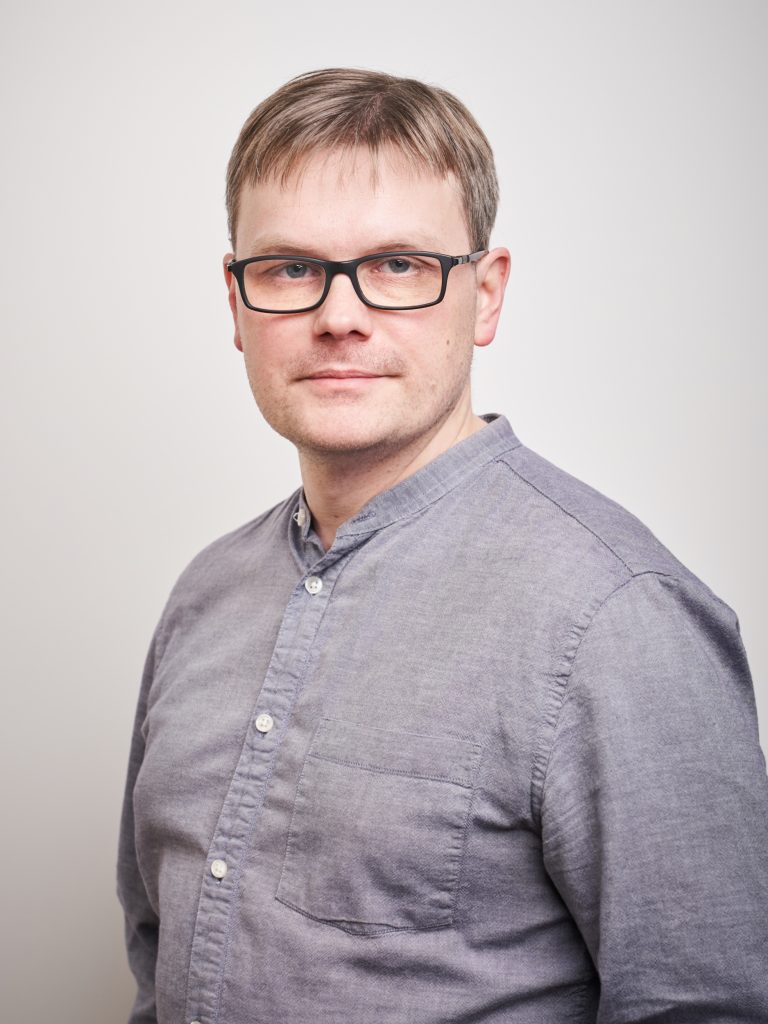Composer, ECU member since 2003Born on 01.10.1976
Estonian Music Information Centre
In 1997, Kristjan Kõrver graduated in music theory from the Georg Ots Tallinn Music School where he also studied composition with Alo Põldmäe. In the same year, he continued his studies in the Estonian Academy of Music and obtained a bachelor degree in composition with Prof. Eino Tamberg and Helena Tulve in 2003.
Kõrver’s music has been performed by Tallinn Chamber Orchestra, Ensemble Voces Musicales, conductors Risto Joost and Lauri Sirp, mezzo soprano Iris Oja, Estonian zither (kannel) player Kristi Mühling, flutist Tarmo Johannes, cellist Leho Karin, Ensemble Resonabilis, pianists Kai Ratassepp and Irina Zahharenkova, Quartet SaxEst and others, his works have been presented at the Estonian Music Days Festival, the Autumn Festival of the Estonian Academy of Music and Theatre, the new music festival “Arena” in Latvia, Estonian Young Composers’ Festival, Tallinn International Harpsichord Days and Suure-Jaani Music Days.
Expansio I for four alto saxophones was awarded the Composer Prize at the Estonian Music Days Festival 2003. In 2005, Kõrver´s work co for solo percussion and string orchestra participated in the International Composers´ Rostrum in Vienna in the category of composers under 30 years. Gratis dictum for instrumental ensemble was awarded the Composer Prize at the Estonian Music Days Festival 2007. In 2013, Kõrver was given the Annual Award of the Edowment for Music of Cultural Endowment of Estonia for the chamber opera Steel Ants.
Kristjan Kõrver:
“Once I stated that I am interested in history and this is my main source of inspiration. Soon I realized that the word “history” has a certain shade of meaning that turns it into a burden and that my interest in several things from past times hasn´t created the whole proper picture, neither is my perception of connections “correct”. I´m forming currently suitable interpretation of history to myself instead. I understand that for getting into the spirit of some past master´s thoughts, it´s necessary to put oneself to his/her situation. Since I´m not capable of doing that, I have to put him/her into my position and that is more effective!
Worklists of great masters have fascinated me since childhood. Now I dare to admit that my main source of inspiration is, in fact, my own potential work list. It doesn´t mean that everything is already foreknown. As the list is not final, I make the corrections every time I have finished a new piece. Usually, irritation arisen from a conflict between current work and ideal work list sets the writing process in motion.
It´s the same with creating a concrete piece – I make enormous preparations in the form of schemes and calculations for that I later may undergo their groundlessness. That is followed by a crisis with a train of thought: “How come I´ve been able to finish any piece so far at all!?” Then comes darkness. After in light I find the next piece completed. But I don´t remember, how. Fortunately…”
© EMIC 2007
